What is the Pakistani dream?
A country torn by its reality weaves a unified dream in Sabiha Sumar’s new film.
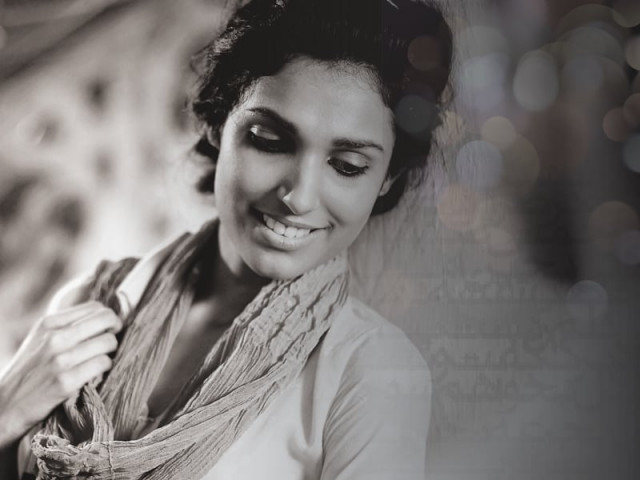
A country torn by its reality weaves a unified dream in Sabiha Sumar’s new film. DESIGN: KIRAN SHAHID & SAMRA AAMIR
The film found its inception in a chance meeting between Sumar and the author Shandana Minhas at a mutual friend’s house. “I had read Shandana’s articles in newspapers,” explains Sumar, “and I invited her to write a novella on the life of a young woman coming of age in Karachi.”

The story of a girl, Rafina, who dreams of leaving the gallis of Faisal Colony for the glamour of Pakistan’s fashion and beauty industry, Good Morning Karachi moves between the different worlds that Karachi is home to; there’s the bubble that Rafina’s clients at a beauty salon inhabit, where women complain that you just can’t get a decent bagel in Karachi, the corporate world where ad executives look for models who encapsulate a notion of enlightened innocence and look as though they have seen a lot but are not corrupted by it, to sell their products. Then there is the world of Rafina’s fiancé, who plasters images of Benazir Bhutto in his home and the white noise of the city and Pakistan as a whole as the radio intermittently announces news of bombings or terrorist attacks (the film’s title takes its name from a radio show, Good Morning Karachi). Even as she is initially bound between her home and the salon she works at, Rafina moves between these spheres — the clipped received pronunciation of a male voice on an English audio guide teaches her to say, “I would like to see London by night” or ask for a hot chocolate or directions to the nearest nightclub while she washes clothes in her home or whiles away her time staring at a luminous model advertising lawn cloth on a billboard outside her room’s window; her marriage is fixed in this home and later, the police break down the door to her home to arrest her fiancé on terrorism charges.

PHOTO: ZEESHAN HAIDER
The heart of the film lies in dreams, more specifically, the Pakistani woman’s dream. “Two of the largest film industries in the world deal with dreams,” explains Sumar, adding, “Hollywood is driven by the American dream and Bollywood by its secular dream of Akhand Bharat (united India).” Sumar feels that the way Pakistan developed as a nation, it did not succeed in manufacturing a dream that would be acceptable to all the people of the nation. The lack of vision, she argues is inextricably linked with Pakistan’s struggle to develop arts and culture, and more specifically the film industry, in the country.

Accordingly, Good Morning Karachi peddles in a number of celluloid fantasies: while Rafina dreams of upward social mobility (“I want my own apartment and my own life,” she informs her brother, telling him, “all modern women live with cats”), her fiancée Arif says, “all women dream of getting married and making a home,” as he dreams of political salvation, a revolution brought about by the leader of the political party he supports. Meanwhile, a young girl at Rafina’s salon says, “I always dreamt of getting married in a white dress,” as she is prepped for her wedding day. Once Rafina finds success as a model, she hopes to help women from her socio-economic strata and launches a campaign with the catchphrase ‘Unveil your loving glow’, featuring the image of a woman lifting the veil of her burqa to reveal her face. The image is plastered on a billboard and on leaflets that are distributed across the city. Thereby, Sumar explains, her film has provided for a Pakistani dream by taking Rafina beyond her personal gain and broadening her dream to reach out to ordinary Pakistani women.

PHOTO: ZEESHAN HAIDER
The image, however, of Rafina, clad in a powder blue mini-dress, discussing the campaign on a morning talk show, is problematic, representing the penultimate Pakistani dream as one in which the country’s women are freed from religious conservatism, able to dress and live just as women in the West. The film thereby further reinforces the disconnect between the people Sumar describes as the vernacular educated and the English-educated elite that has opportunities at every corner, as Rafina is unable to straddle her two lives and, by the film’s conclusion, is firmly positioned within the sphere of the elite.
Just as she screened Khamosh Pani across the country through mobile cinema halls, Sumar says she plans to exhibit Good Morning Karachi in towns and villages in Pakistan. It will be interesting to note the reactions of more conservative audiences, particularly as Rafina comes to embody all that is seen as too modern or Western by many in the country. Sumar isn’t worried, however. “Rafina’s dream represents the aspirations of many young women whether they are rural or urban,” she explains, adding that, “I believe TV and media in general have opened up our understanding of international fashion and I don’t think Good Morning Karachi will be viewed in a narrow perspective.”

PHOTO: SABIHA SUMAR
While Rafina’s campaign to unveil your loving glow is a tad flimsy in its goals, it is ultimately our inability to emotionally connect with Rafina’s journey that renders her dream a singular vision. Towards the film’s conclusion for instance, Rafina, now a model for a national brand, says, “I don’t hate my part of the city anymore.” When pressed for details of what she loves about her neighbourhood, she says, teary eyed, “The gola gunda from Five Star.” The sentiment, while it may be true, rings hollow, particularly as the film ends with Rafina’s successful transition from Faisal Colony to a more affluent neighbourhood in the city. At the film’s screening in London, actor and comic Beo Raana Zafar explained that, “One thing Sabiha taught us was that there’s a line and there’s a subtext. You don’t act the lines, you act the subtext.” With this film, unfortunately, much of this subtext fails to translate, most tellingly as a mystified member of the audience asked Zafar, “So, really, how did your character die at the end?”

PHOTO: SABIHA SUMAR
Good Morning Karachi is ultimately a celebration of the spirit of the city of Karachi and the fortitude of its people, a city where, as Rafina believes, anything is possible. “This city is not like any other city in Pakistan,” says Sumar. “It’s sad that Karachi has sunk into violence in the past few years but its potential as a city that drives ambition is certainly palpable.”

Despite its shortcomings, the film is an important contribution to Pakistan’s fledgling independent film industry, which can only learn from its successful and not-so-stellar productions. Sumar notes that the industry is changing, buoyed by the successes of projects such as Saving Face, Zinda Bhaag or Seedlings and the recent inclusion of Pakistani entries for consideration at the Academy Awards. “The audience was always receptive,” she explains, “but there were no opportunities.” But times, it seems, are changing and Sumar has thrown herself back into work, with two feature films and a documentary in the pipeline.
Published in The Express Tribune, Sunday Magazine, November 10th, 2013.

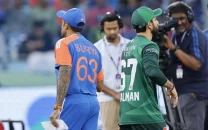
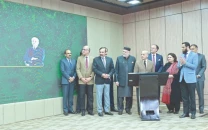
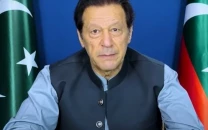
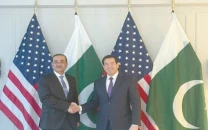














COMMENTS
Comments are moderated and generally will be posted if they are on-topic and not abusive.
For more information, please see our Comments FAQ